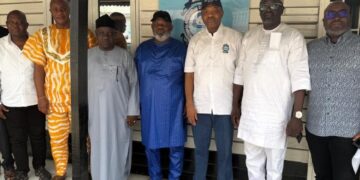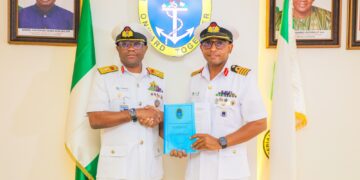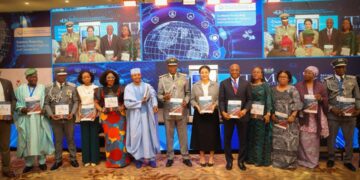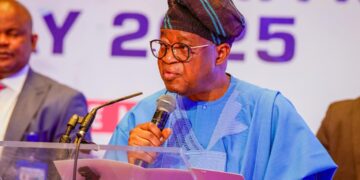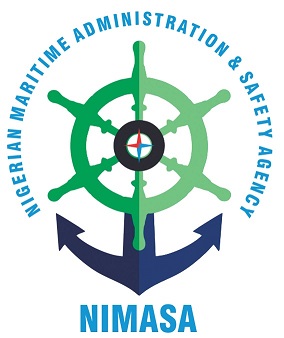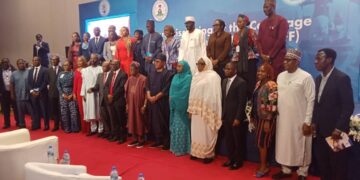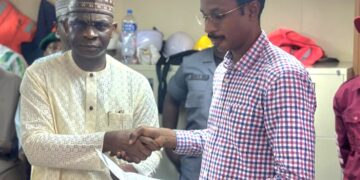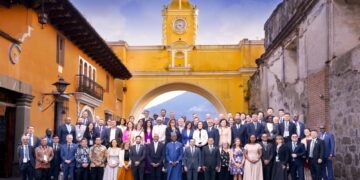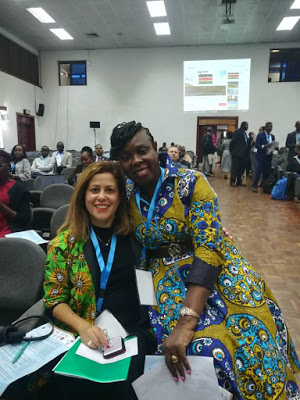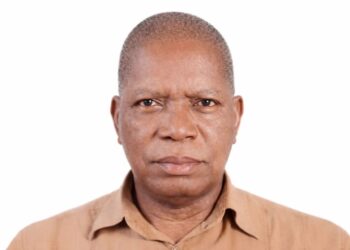As the United Nations declares the period between 2021- 2030 a Decade of the Ocean Science for Sustainable Development, calls have also begun from concerned groups on the need to equip
the larger societies of people to be knowledgeable on appropriate actions to match the desired goal.
the larger societies of people to be knowledgeable on appropriate actions to match the desired goal.
The concerns are that the oceans, which help to regulate the climate and provide food and wealth resources for large populations of people have come under great degradation owing largely to industrialization and human activities causing pollution.
In that regard, President of African Women in Maritime (WIMAfrica), Mrs. Jean Chiazor Anishere, delivering a paper at the ongoing regional consultative workshop holding in Kenya, supported the need for an all-inclusive approach to create awareness and get communities involved.
She said: “It is increasingly important to gather as a scientific community to raise awareness of the truly global dimension of the ocean, address environmental challenges, and set forth on a path towards a resilient planet.”
She noted that the vast resources of the oceans were fast depleting also due to the increased population of people living closer to the ocean, and by default polluting the oceans as their daily
activities cause them to generate waste and very likely, not manage such waste appropriately.
activities cause them to generate waste and very likely, not manage such waste appropriately.
“Today, more than 40% of the global population lives in areas within 200 km of the ocean and 12 out of 15 mega cities are coastal. Doubling of the world population over the last 50 years, rapid industrial development, and growing human affluence are exerting increasing pressure on the ocean.
“Climate change, non-sustainable resource extraction, land-based pollution, and habitat degradation are threatening the productivity and health of the ocean,” she said.
The WIMAfrica President, in her presentation, remarkably noted that “The most challenging ocean pollutants include: atmospheric carbon dioxide, which causes climate change, ocean warming, ocean acidification, and sea level rise; agricultural fertilizers, which lead to increased primary production but result in ocean deoxygenation; untreated waste water; invasive species; micro and macro plastics, the exponential increase of which has an environmental impact as yet only partially
known.”
known.”
The focus of the Decade of the Ocean Science therefore, according to her, would be for the scientists working with decision-makers and society to establish new knowledge from their
assessment of the human and environmental risks of types of pollution to the ocean and share information on new ways to reduce the pressure on the ocean.
assessment of the human and environmental risks of types of pollution to the ocean and share information on new ways to reduce the pressure on the ocean.
She said that such knowledge should help with the best way of promoting recycling, improved waste management and incentive and governance regimes to encourage more sustainable production and consumption.
Capacity building and resources sharing will be vital to the success of the decade of ocean science, the WIMAfrica President said.
She added that as it demands wider engagement of communities of people to get the right information for action in sustainable use of the ocean and proper waste management, people should be able to access open online courses in the discipline, while young children in primary and secondary schools should be exposed to ocean literacy.
Anishere also advocated for “training courses and exchange programs between south–south and north–south ocean actors, as well as courses for ocean professionals.”
Those initiatives hold tremendous potential to raise ocean awareness and promote better solutions, the WIMAfrica President said.



